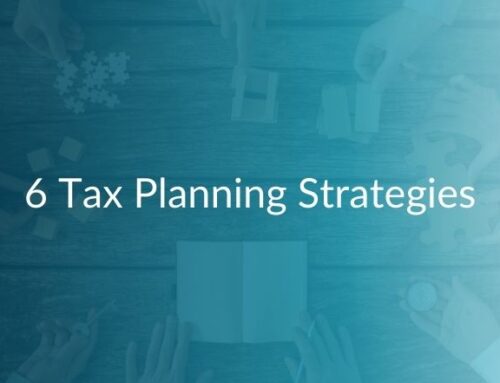Have you ever run into a situation where you almost couldn’t pay your employees because cash was so tight?
How about failing to make office rent in time and having to pay extravagant late fees?
As an agency owner, cash flow is the life-blood of your business.
That’s why managing your cash flow is such an integral step in finding success.
In this article, I’ll let you in on a few secrets to managing cash flow and examples of how these cash management solutions have helped agencies interpret their situations and make the best business decisions.
But first, what is cash management and what is the importance of a successful cash management strategy?
Keep reading to find out.
WHAT IS CASH MANAGEMENT?
Cash management (or, cash flow management), is the way a business manages cash coming into and out of it, as well as how it manages the money left over for re-investment opportunities.
It also involves the management of liabilities the business takes on so they can reinvest into the business and control their liquidity.
Simply put, cash flow management is the life-blood of the business; how well it’s done affects how long a business can survive.
Market Liquidity
Market liquidity refers to a business’ ability to cover its debts.
If you look at a business’ assets, they sometimes aren’t all able to be liquidated, AKA turned into cash quickly.
The higher a business’ liquidity, the better their ability to quickly convert assets to cash.
Investments
Based on the above definitions, you may now be wondering how managing your cash flow may affect your investments.
Well, the better a business is at managing their cash flow, the more they are able to thoughtfully reinvest in the business.
If you have no idea of how your cash will look over the next 12 months, it becomes significantly harder to make decisions on whether to re-invest in staff or equipment for your agency or business.
Having a cash management strategy helps you to make decisions based on what it would look like financially were you to support a new sales initiative, launch a new marketing project, or invest in something like office equipment.
CASH MANAGEMENT STRATEGIES AND EXAMPLES
As a financial studio, we’ve worked with countless agencies on cash flow management and have developed several strategies to help these companies plan for future investments and save when incoming cash may be scarce.
Here are a few strategies we’ve used and a few real-world examples of these strategies in action.
Strategy 1: Project Milestones for Cash Flow Prediction
As you may be aware, agencies typically bill for their work either on a monthly basis, or by project.
We’ve worked with several agencies who do project-based work as opposed to having monthly retainers. And while both payment structures have their pros and cons, with monthly retainer based payment cycles, cash flow is slightly easier to predict (assuming clients pay on time…#agencylife).
But, when you deal primarily in projects (web dev and creative agencies, I’m talking to you), it can be tougher to anticipate when the business will be flush with cash or gearing up to hit lean times.
In these cases, setting project milestones is crucial.
For instance, let’s say you’re planning to work on a project for 6 months.
How are you handling collections?
Knowing that makes managing your cash flow easier because you know what money is coming in and when.
When you start a project as an agency, it is a best practice to take at least 50% of the project fee up front. Then, when you hit a milestone in the project, you can take steps to make sure the next payment comes in exchange for your deliverables.
Having a tight collections process is essential to making sure you’re paid on time. And having automation in place to make sure people are being followed up with if they don’t pay after 30 days is very helpful as well.
You can set up a simple email automation sequence to notify your clients after a certain period of time where an invoice is unpaid using your email, invoicing, or CRM software.
Sometimes people just forget and need a little reminder; other times, it’s likely they actually can’t pay you.
Either way, it’s your business on the line.
That’s where strong client vetting and negotiating air tight contracts is key.
Ultimately, the collections process can be a headache if you’re constantly having to chase after clients.
That’s why it’s important to be selective about who you work with and to make sure they actually have the ability to pay you for your work.
Strategy 2: Cash Flow Forecasting
Oftentimes, we set up 24 month models for our clients to see what their month-to-month cash flow looks like. These models are designed to look forward so you aren’t left being held back.
Doing this can help forecast what different scenarios would look like, such as if you want to attend a conference and bring 10 people, calculate travel expenses or determine if you can do some hiring.
Understanding cash flow is really important when you want to figure out when cash payments should go out, how benefits work, or what additional assets need to be purchased.
Our 24 month cash flow models typically have 3 sections.
24 MONTH CASH FLOW MODEL SECTIONS
RECURRING EXPENSES
This section gives a good idea of what it would cost the agency to operate if there is no new business coming in.
Sources of Revenue
When creating this section, we work with the owners to understand the best way to forecast month-to-month revenue, as well as monthly recurring and project-based revenue.
We also will look at closed contracts and the current sales pipeline to understand sales goals and work backward into understanding what the dollar amounts would look like in revenue.
This helps in predicting when sales will close as well as when the agency would actually receive the money coming in.
SPECIAL PURCHASES
Finally, we take a look at special purchases like marketing and investments into the business itself.
We also attempt to determine what departments need to be involved in those purchases to keep the business running smoothly.
Now that you’ve seen some of the strategies you can use to help predict cash flow, let’s dive in to some specific examples of times where having these insights about cash were imperative to making the best business decisions.
Example 1: The Agency Who Didn’t Track Their Cash
There was an agency we worked with who wasn’t tracking any cash.
Unsurprisingly, they quickly got to a point where they could no longer run their business!
Now, since cash is the life-blood of any business, especially an agency business, we knew that this agency would be in trouble if we couldn’t help them figure out how to anticipate cash flow.
The first thing we did was create cash flow forecast models to help them figure out where they should and should not be spending, then added those models into a 24 month plan.
As I discussed a little earlier, what the 24 month plan allowed us to do was create a plan for the agency to pay back their debts in a way that didn’t put strain on their cash.
Once the business demonstrated their ability to pay back their loans, we advised them to open a line of credit to help inject cash back into the company.
Having the awareness of an established financial plan allowed them to make decisions and set up other ways to pull cash in the case of a downturn in business.
Example 2: The Agency That Outgrew Their Office Space
Another example was in the case of an agency that was growing rapidly and needed more space.
With the cash flow model we created for them, they were able to see what it would look like to purchase more assets, hire more employees, and finally, get a bigger office space.
Based on the information presented in their cash flow analysis, they ended up increasing their lease and renting a second floor of the building they were in.
Had the company not understood their sales goals and cash situation, they would have had a much harder time determining whether or not the expansion was a good idea.
Example 3: The Agency Who Chose to Use Cash Instead of Credit
In this example, we were working with an agency who wanted to develop an app.
They had previously established a line of credit in order to have different types of debt they could tap into, but the problem was, they weren’t sure if they should use the cash they had on hand, or finance the creation of the app.
We ended up using a model to show them what it would look like if they chose to use their cash on hand.
What we found was that if they went this route, there would be a period of time where cash would be extremely low.
In the end, they decided to finance the project in order to circumvent the potential danger of being out of cash.
Simply put, if you’re unsure whether to finance a purchase with credit or use the cash you have on hand, a solid cash management strategy can help you avoid running into many problems down the line.
CASH MANAGEMENT FOR PEACE OF MIND
Keeping a watchful eye on your cash position will help you know your worth and understand your financial strength.
When agencies aren’t properly managing their cash flow, they are often operating in a blind spot where it’s difficult to understand their 3, 6, and even 12 month runways.
You can ruin your entire business by running out of cash, and the headache of trying not to miss important financial milestones like payroll, rent, taxes, or vendor responsibilities creates a lot of stress for business owners.
What it really comes down to is that running a successful agency is no simple feat. Don’t subject yourself to undue stress and anxiety by turning a blind eye to your cash situation.
If you don’t practice cash flow management for any other reason, I say do it for your peace of mind.
Have questions about how managing cash flow can help you scale your agency more rapidly? Drop me a line.
I’ve got more tricks up my sleeve that I can share with you when your ready for growth (and peace of mind)!







